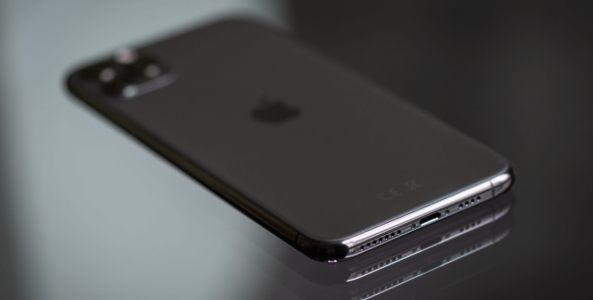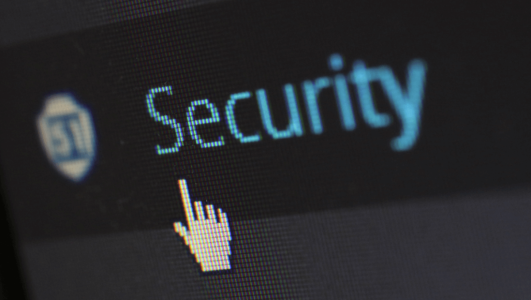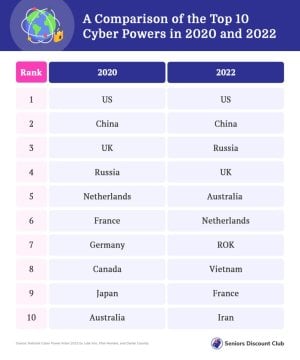Have thousands of iPhones been compromised? Russia 'uncovers' a massive spy plot
- Replies 5
In today's interconnected world, technology is simultaneously our best friend and our worst enemy. With smartphones and tablets allowing us to stay connected to loved ones and the internet giving us access to information, it might be hard to imagine a world without these modern conveniences.
However, as much as we appreciate these innovations, we can't ignore the potential dark side of technology: cyber threats and espionage. And if recent headlines are anything to go by, that's precisely what's unfolding with a massive, alleged iPhone hacking scandal.
According to Russia's Federal Security Service (FSB), the primary successor of the Soviet-era KGB, a massive espionage operation backed by the United States has compromised thousands of Apple iPhones.
By using advanced surveillance software, this operation infiltrated iPhones belonging to domestic Russian subscribers, foreign diplomats stationed in Russia and the former Soviet Union countries.

The FSB issued a statement accusing American intelligence services of using Apple mobile devices to carry out their spying activities. They also mentioned a 'close cooperation' between Apple and the National Security Agency (NSA), a US agency responsible for cryptographic and communications intelligence and security.
However, the FSB provided no evidence to support these claims.
While Apple has categorically denied these allegations, saying they have never worked with any government to insert backdoors into their products and never will, the NSA declined to comment.
Moscow-based Kaspersky Lab, a well-known cybersecurity company, has also come forward, saying that dozens of their employees' iPhones were compromised during this operation.
Eugene Kaspersky, the CEO of Kaspersky Lab, took to Twitter to state that the attack targeted top and middle-management workers of his company and was an 'extremely complex, professionally targeted cyberattack.' Despite being a victim of the attack, Kaspersky believes that their company was not the primary target.
Kaspersky researcher Igor Kuznetsov told a news source that they independently discovered unusual traffic on their corporate Wi-Fi network earlier this year but didn't circulate the findings to Russia's Computer Emergency Response Team until recently. Attributing responsibility is challenging, as he explains, 'It's very hard to attribute anything to anyone.'
According to Kaspersky's blog post, the earliest trace of infection dates to 2019, and the attack is still ongoing as of June 2023. The FSB has also alleged that American hackers have compromised diplomats from Israel, Syria, China, and NATO members during this espionage campaign.
It's worth noting that the United States ranks as the world's top cyber power in terms of intentions and capabilities, as per Harvard University's Belfer Center National Cyber Power Index 2022. China, Russia, the United Kingdom, and Australia follow closely behind.
The Kremlin and Russia's Foreign Ministry have emphasised the gravity of the issue, citing hidden data collection through software vulnerabilities in US-made mobile phones. Russia claims that the country's intelligence services have long been collaborating with IT corporations to gather large-scale data on internet users without their consent.
While Russian officials supposedly discovered the espionage plot through a joint effort between the FSB officers and the Federal Guards Service (FSO), it raises concerns about the security of technology, particularly US-made devices, in the eyes of the global community.

At Seniors Discount Club, we're all about looking out for our members and keeping them informed about staying safe in the digital world. We believe everyone must prioritise their security and stay aware of the potential risks that come with technology.
Whether it's setting strong passwords or ensuring that your devices have the latest security software installed, taking these steps is vital to safeguarding your identity and personal data. We can't stress enough how important it is not to overlook digital security.

That's why we wanted to remind you all today to never underestimate the significance of protecting yourself online. By taking the necessary precautions and staying informed about the potential threats that exist, you can navigate the digital landscape with confidence.
Staying informed about the latest scams and frauds is a key part of protecting yourself from online threats. And one great resource for doing so is the Scam Watch forum on the SDC website.
We'd love to hear your thoughts on this news story! Feel free to share your opinions and insights in the comments section below.
However, as much as we appreciate these innovations, we can't ignore the potential dark side of technology: cyber threats and espionage. And if recent headlines are anything to go by, that's precisely what's unfolding with a massive, alleged iPhone hacking scandal.
According to Russia's Federal Security Service (FSB), the primary successor of the Soviet-era KGB, a massive espionage operation backed by the United States has compromised thousands of Apple iPhones.
By using advanced surveillance software, this operation infiltrated iPhones belonging to domestic Russian subscribers, foreign diplomats stationed in Russia and the former Soviet Union countries.

According to FSB's findings, the operation involved the use of highly advanced surveillance software to compromise a large number of iPhones, reaching into the thousands. Credit: Pexels/Torsten Dettlaff.
The FSB issued a statement accusing American intelligence services of using Apple mobile devices to carry out their spying activities. They also mentioned a 'close cooperation' between Apple and the National Security Agency (NSA), a US agency responsible for cryptographic and communications intelligence and security.
However, the FSB provided no evidence to support these claims.
While Apple has categorically denied these allegations, saying they have never worked with any government to insert backdoors into their products and never will, the NSA declined to comment.
Moscow-based Kaspersky Lab, a well-known cybersecurity company, has also come forward, saying that dozens of their employees' iPhones were compromised during this operation.
Eugene Kaspersky, the CEO of Kaspersky Lab, took to Twitter to state that the attack targeted top and middle-management workers of his company and was an 'extremely complex, professionally targeted cyberattack.' Despite being a victim of the attack, Kaspersky believes that their company was not the primary target.
Kaspersky researcher Igor Kuznetsov told a news source that they independently discovered unusual traffic on their corporate Wi-Fi network earlier this year but didn't circulate the findings to Russia's Computer Emergency Response Team until recently. Attributing responsibility is challenging, as he explains, 'It's very hard to attribute anything to anyone.'
According to Kaspersky's blog post, the earliest trace of infection dates to 2019, and the attack is still ongoing as of June 2023. The FSB has also alleged that American hackers have compromised diplomats from Israel, Syria, China, and NATO members during this espionage campaign.
It's worth noting that the United States ranks as the world's top cyber power in terms of intentions and capabilities, as per Harvard University's Belfer Center National Cyber Power Index 2022. China, Russia, the United Kingdom, and Australia follow closely behind.
The Kremlin and Russia's Foreign Ministry have emphasised the gravity of the issue, citing hidden data collection through software vulnerabilities in US-made mobile phones. Russia claims that the country's intelligence services have long been collaborating with IT corporations to gather large-scale data on internet users without their consent.
While Russian officials supposedly discovered the espionage plot through a joint effort between the FSB officers and the Federal Guards Service (FSO), it raises concerns about the security of technology, particularly US-made devices, in the eyes of the global community.
Key Takeaways
- Russia's Federal Security Service (FSB) claimed to have uncovered an espionage operation that compromised thousands of iPhones using sophisticated surveillance software.
- Moscow-based Kaspersky Lab reported that dozens of its employees' devices were compromised in the operation.
- The FSB accused Apple and the National Security Agency (NSA) of 'close cooperation' in the spying campaign, although no evidence has been provided to support these claims.
- Apple denied the allegations, stating that it has never worked with any government to insert a backdoor into its products.
At Seniors Discount Club, we're all about looking out for our members and keeping them informed about staying safe in the digital world. We believe everyone must prioritise their security and stay aware of the potential risks that come with technology.
Whether it's setting strong passwords or ensuring that your devices have the latest security software installed, taking these steps is vital to safeguarding your identity and personal data. We can't stress enough how important it is not to overlook digital security.

Although modern technology has provided us with unprecedented convenience and connectivity, it's essential to be mindful of the risks they pose. Credit: Pixabay/Pexels.
That's why we wanted to remind you all today to never underestimate the significance of protecting yourself online. By taking the necessary precautions and staying informed about the potential threats that exist, you can navigate the digital landscape with confidence.
Staying informed about the latest scams and frauds is a key part of protecting yourself from online threats. And one great resource for doing so is the Scam Watch forum on the SDC website.
We'd love to hear your thoughts on this news story! Feel free to share your opinions and insights in the comments section below.








